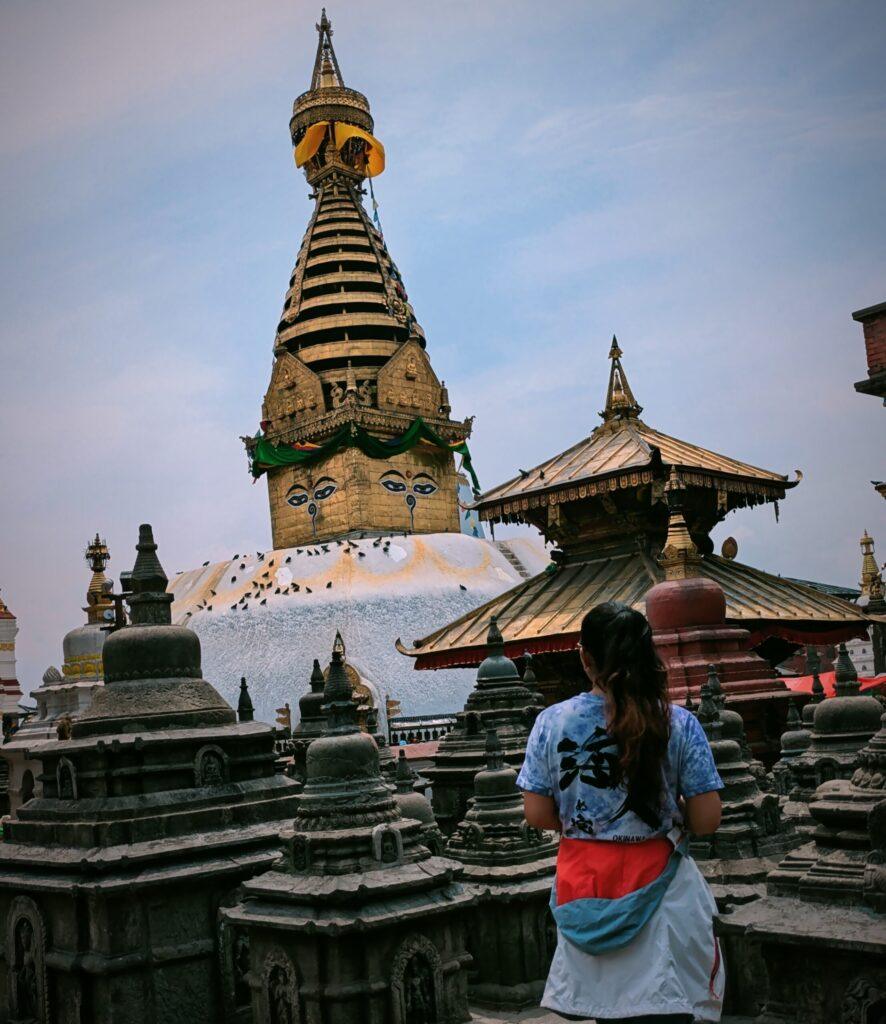Swayambhunath, lovingly known as the Monkey Temple, is one of the most iconic landmarks in Kathmandu. Perched high on a hill overlooking the city, it’s a place where spirituality meets breathtaking scenery. This UNESCO World Heritage Site is not just an ancient stupa—it’s a living symbol of harmony between Buddhism and Hinduism, with fluttering prayer flags, the scent of incense, and the sound of temple bells echoing across the valley.
Whether you’re on a spiritual journey, a photography mission, or just want to soak in Nepal’s timeless charm, there are plenty of things to see and do around Swayambhunath.
Let’s dive into the top things to do around Swayambhunath (Monkey Temple) — plus some insider tips to make your visit extra special.
Learn more about the UNESCO World Heritage listing for Swayambhunath to appreciate its historical and spiritual significance.
Read more travel stories from Nepal on our blog at Sarus Postcards.
1. Explore the Swayambhunath Stupa
The magnificent white dome of the Swayambhunath Stupa, crowned by the all-seeing eyes of Buddha, dominates the skyline. It’s one of the oldest and most sacred religious sites in Nepal, believed to date back more than 2,000 years.
Walk clockwise around the stupa while spinning the golden prayer wheels. Each rotation is said to release prayers and blessings into the world. As you circle, you’ll hear monks chanting, smell butter lamps burning, and see locals offering flowers and rice — a scene that truly captures the spiritual soul of Nepal.
📸 Tip: Arrive early in the morning for a peaceful experience before the crowds and monkeys wake up!
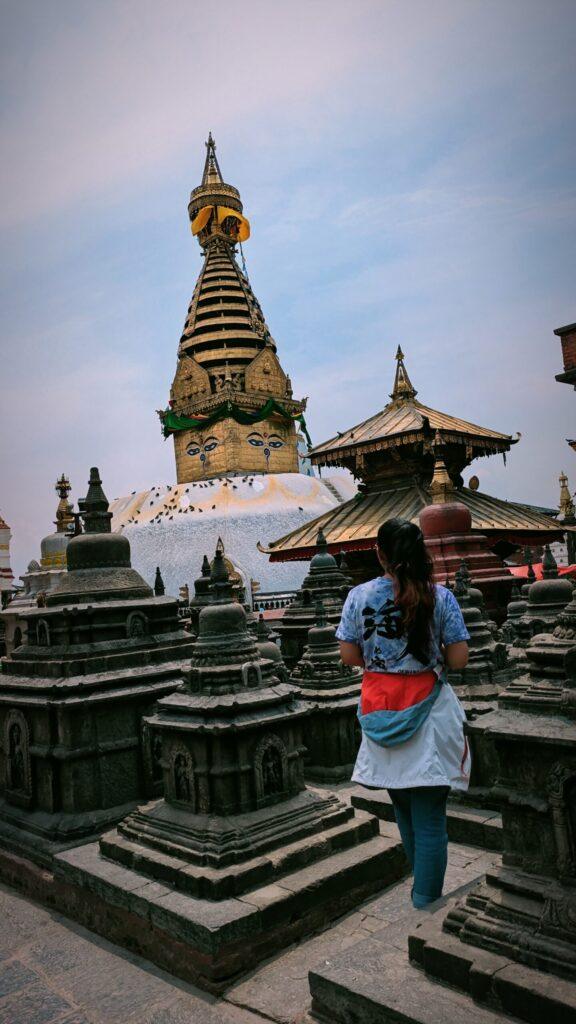
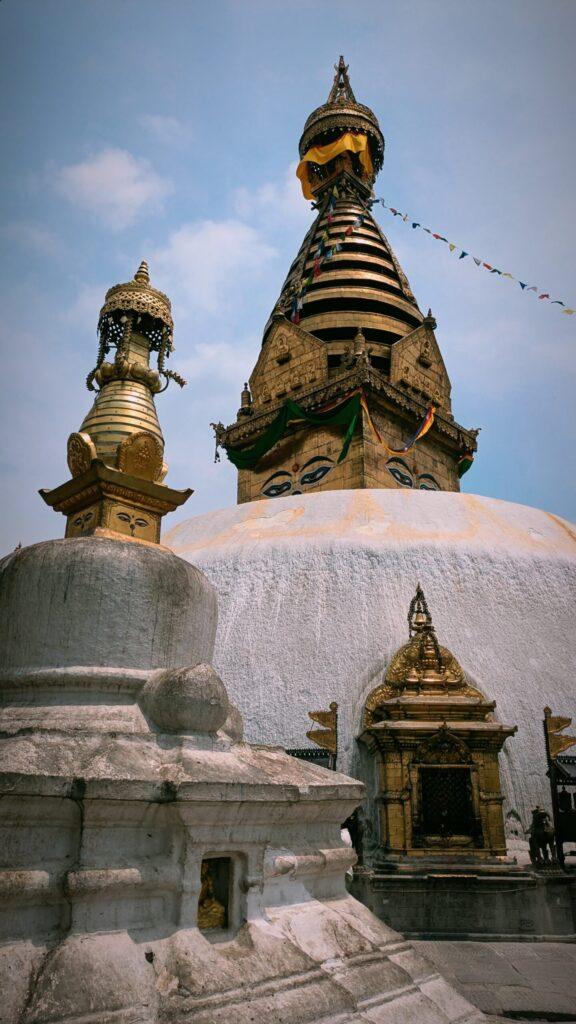
2. Enjoy the Panoramic Views of Kathmandu
Climbing the 365 steps to the top is a small challenge, but every step is worth it. From the summit, you’ll get a panoramic view of the entire Kathmandu Valley — a stunning tapestry of temples, houses, and the distant Himalayas.
Visit during sunrise when the golden light touches the stupa and the city below slowly comes alive. Sunset is equally magical as the valley glows in soft hues of orange and pink.
If you love photography, this is one of the best viewpoints in Kathmandu.
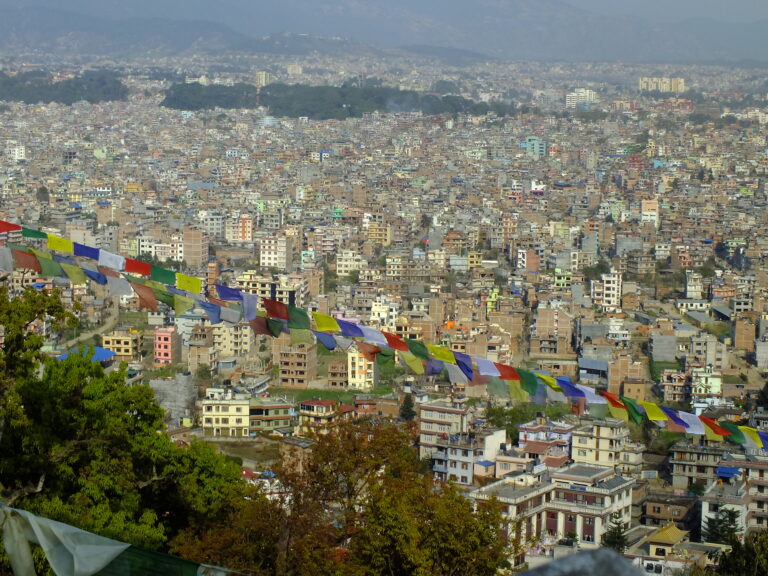
3. Watch the Sacred Monkeys
The playful residents of Swayambhunath — hundreds of monkeys — give the temple its nickname. Locals believe these monkeys are holy, representing Hanuman, the Monkey God.
They’re fun to watch, especially the little ones tumbling down stairways or stealing fruit offerings. But do keep your belongings close — these cheeky creatures are clever!
📷 Fun Fact: Local legend says the monkeys were born from the head lice of Manjushri, the bodhisattva who drained the lake to create the Kathmandu Valley.
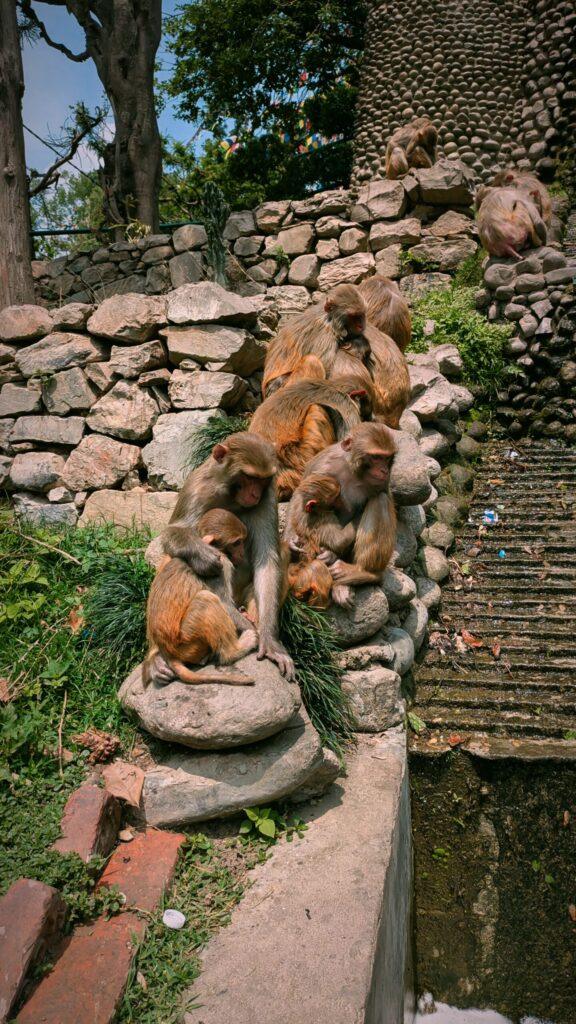
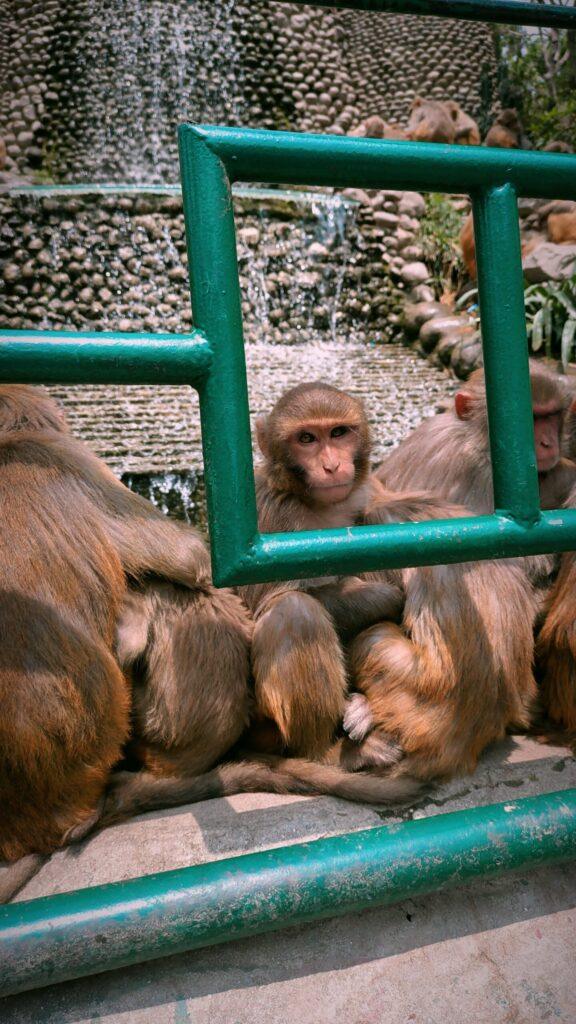
4. Visit the Golden Vajra and Small Shrines
At the top of the eastern stairway stands the giant golden Vajra (thunderbolt), a symbol of spiritual power and enlightenment. It guards the entrance to the main stupa.
Surrounding the main dome are smaller shrines, chaityas, and statues representing different deities. Each structure tells a story from Nepal’s spiritual history — Buddhist and Hindu alike.
Take your time to observe the carvings and details — they show how art, religion, and devotion intertwine in everyday Nepali life.
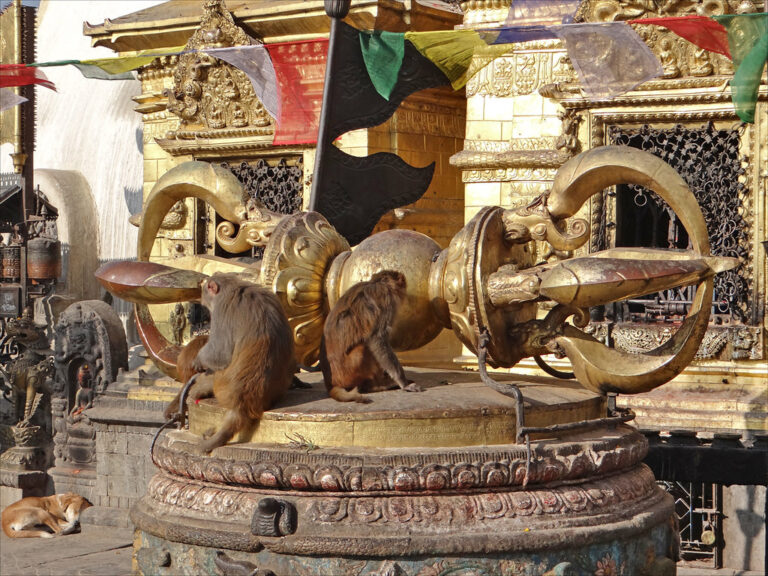
5. Meditate or Join a Local Puja
Swayambhunath isn’t just a tourist spot — it’s a living, breathing spiritual center. Spend a few minutes sitting quietly on the stupa’s steps or near a monastery to feel the calm energy around you.
If you’re lucky, you can witness a puja (prayer ritual) with monks chanting, bells ringing, and incense swirling through the air. It’s a deeply moving experience that reminds you that Swayambhunath is not just a place to see, but a place to feel.
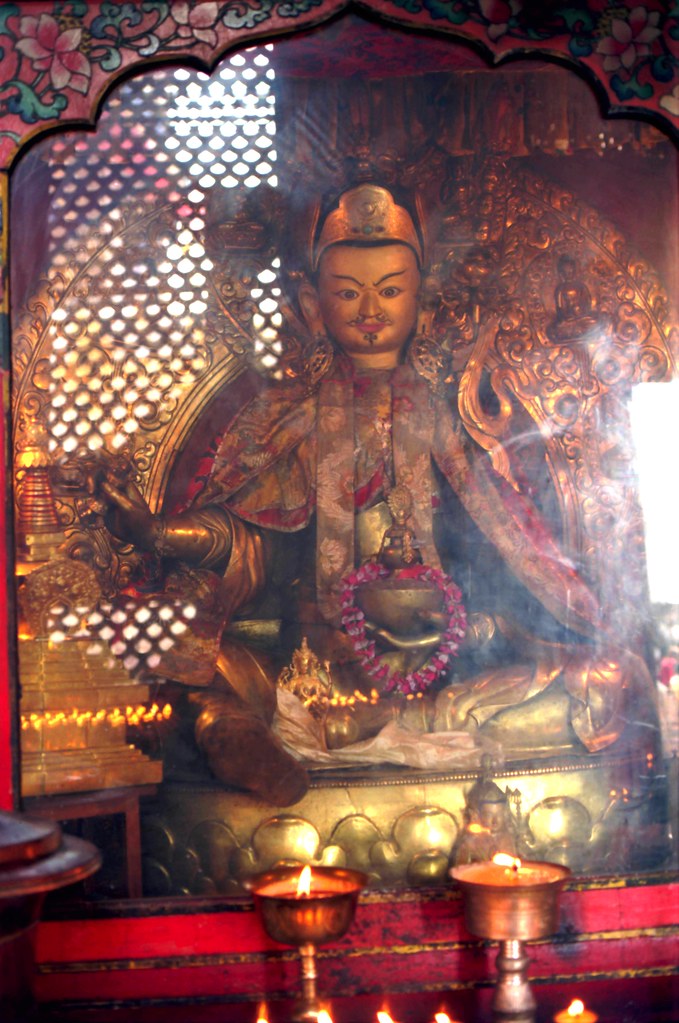
6. Discover the Amideva Buddha Park
At the base of the Swayambhunath hill lies Amideva Buddha Park, often called the “Three Buddha Park.” Here stand three enormous golden statues — Amitabha Buddha at the center, flanked by Avalokiteshvara and Padmasambhava.
The park is peaceful and well-kept, perfect for photos or a quiet moment of reflection after climbing down from the stupa.
You’ll often find families picnicking, monks walking by with prayer beads, and travelers simply gazing up at the serene golden faces.
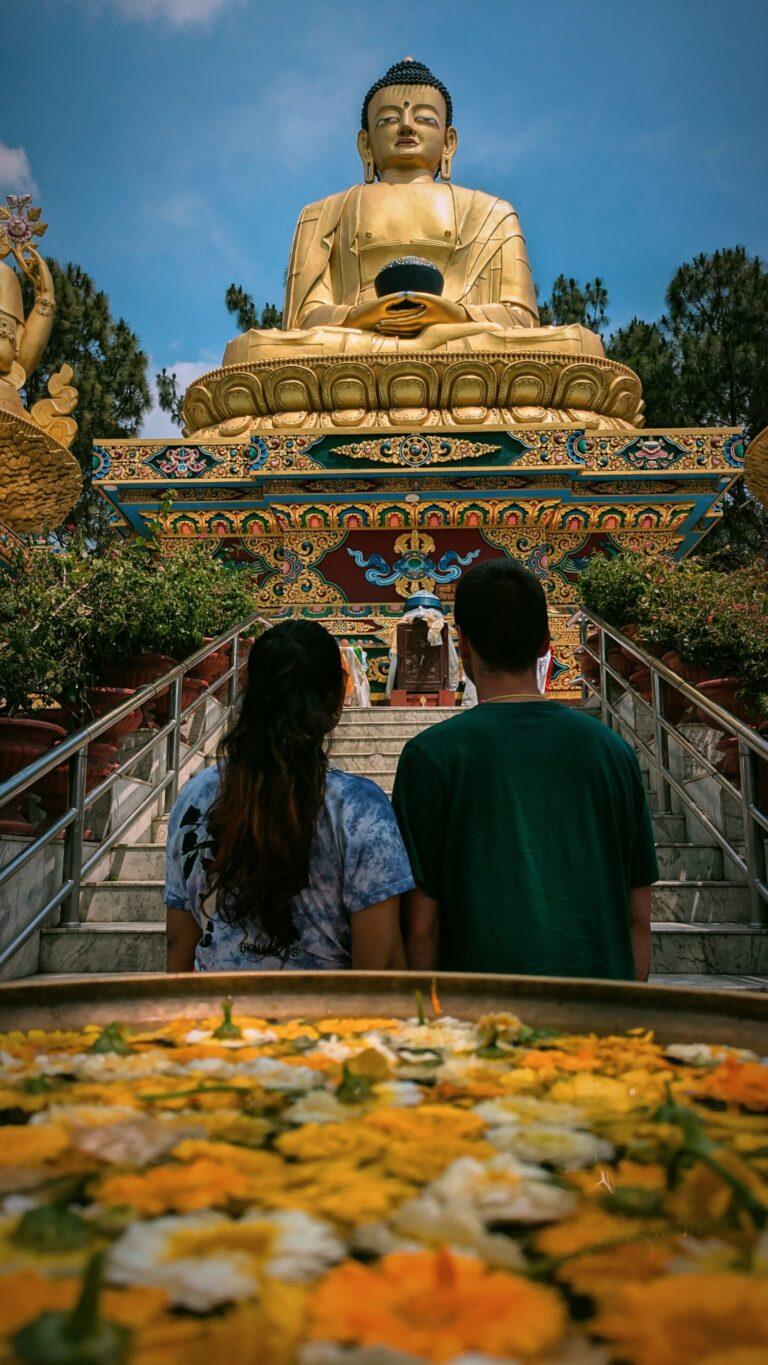
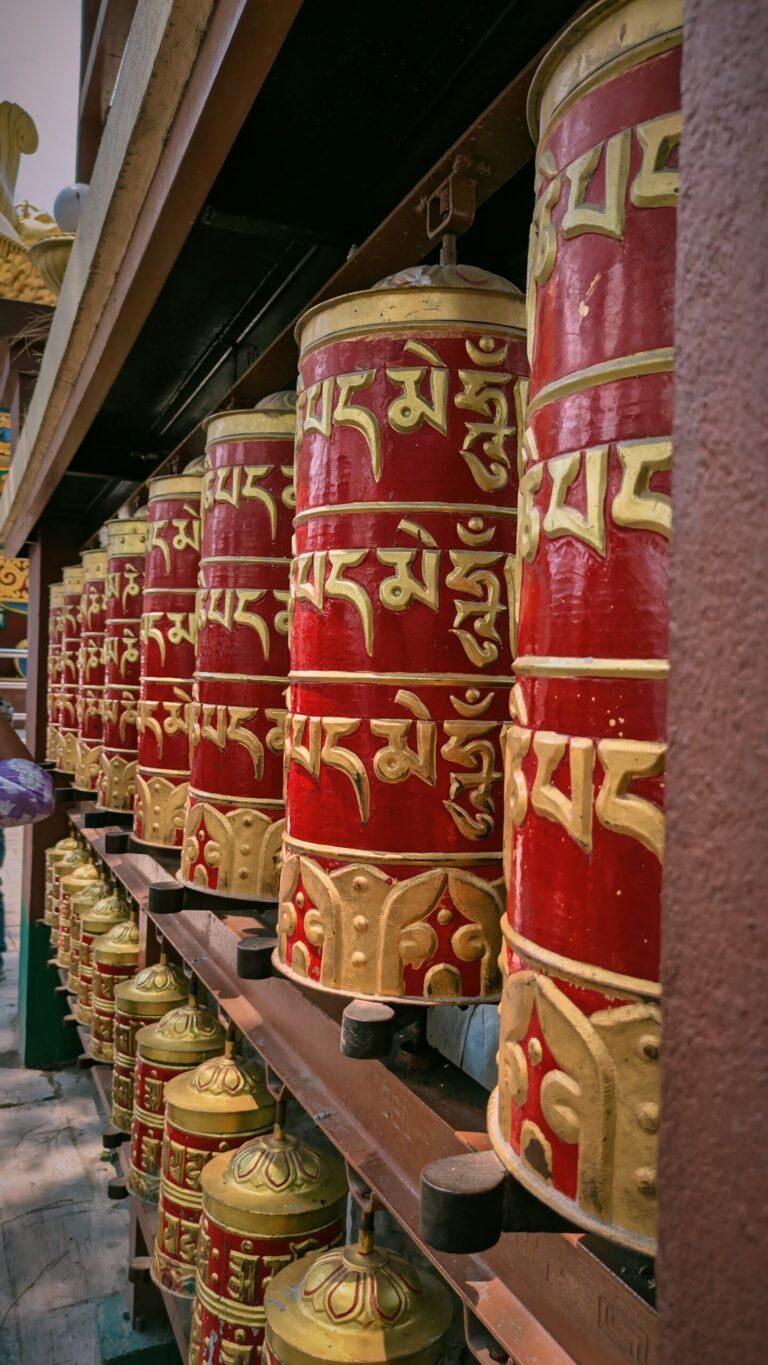
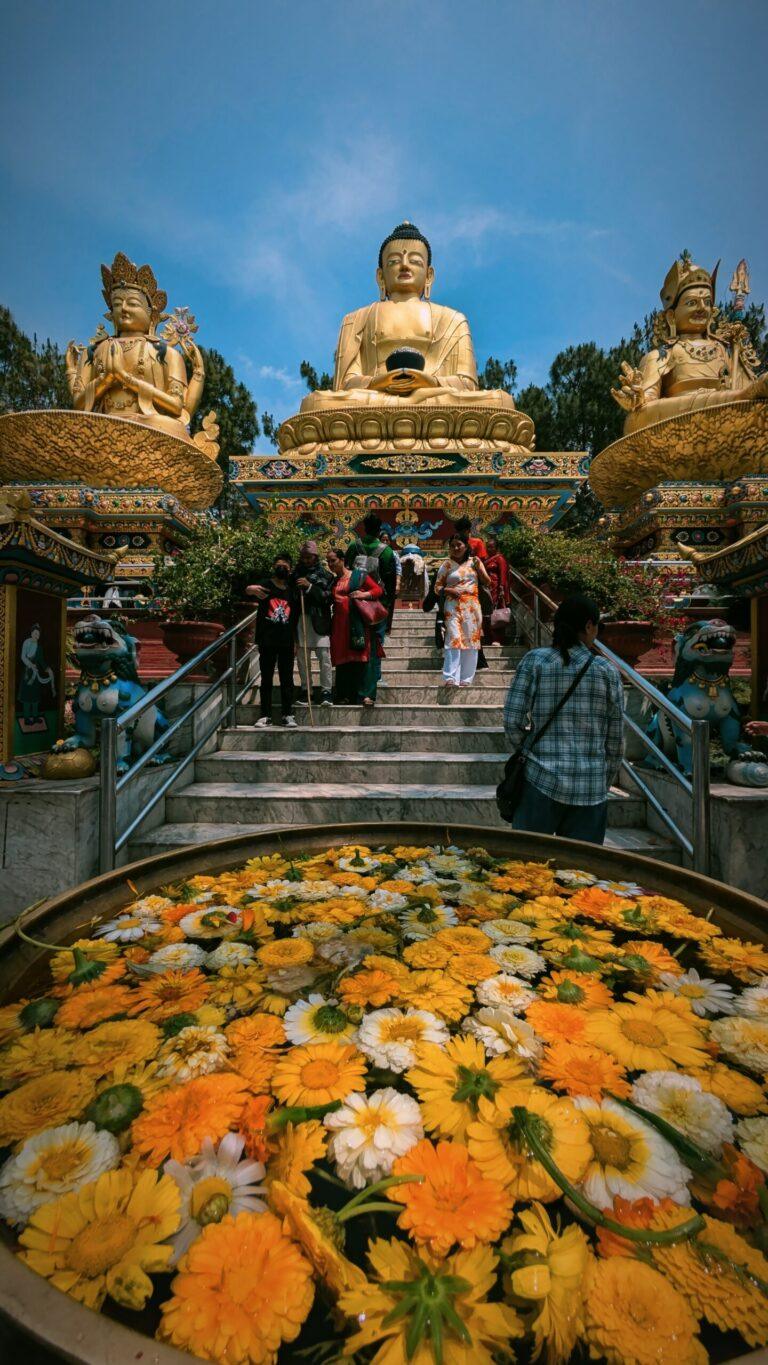
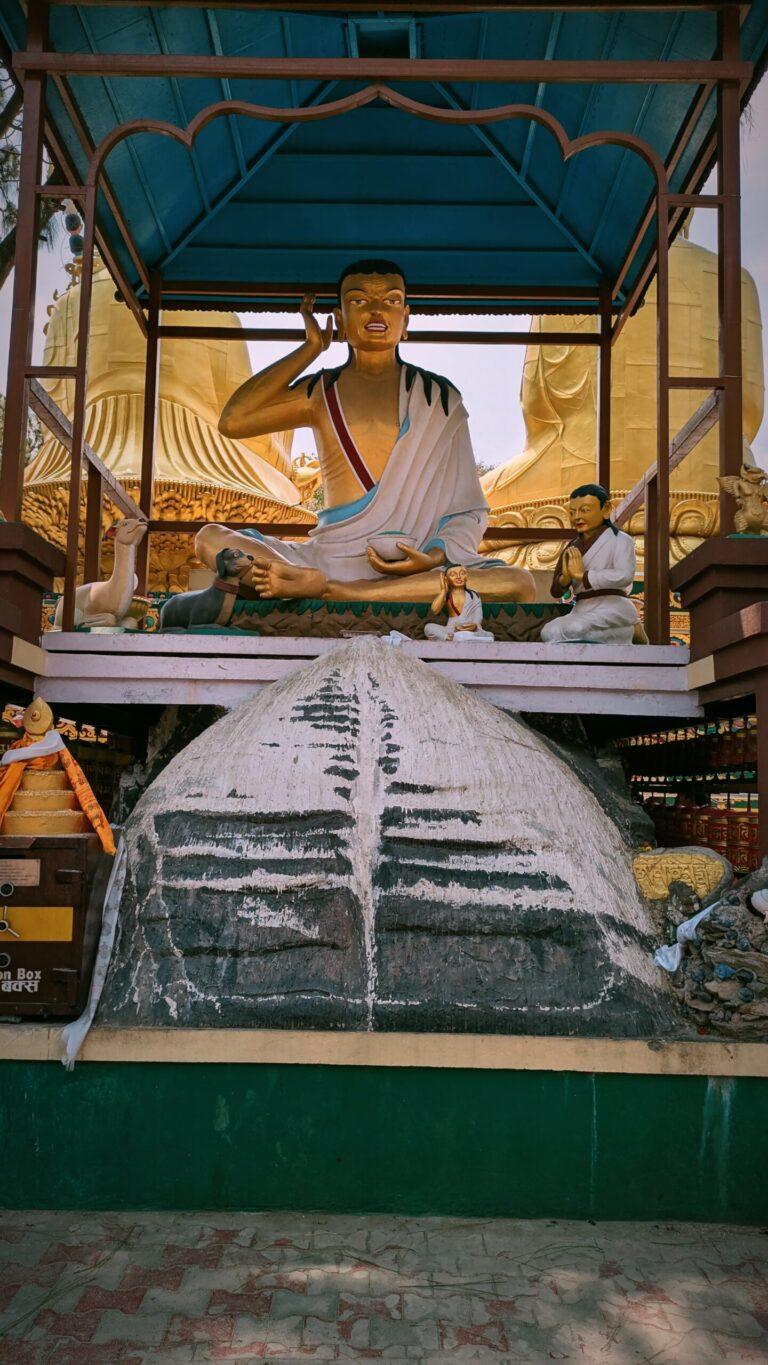
7. Visit the Natural History Museum
Just a few minutes’ walk from Swayambhunath is the Natural History Museum, a small but fascinating stop. It houses over 50,000 specimens — from Himalayan butterflies to fossils, minerals, and even rare animal skeletons found in Nepal.
It’s a great detour if you’re traveling with kids or interested in Nepal’s biodiversity. The museum’s quiet ambiance is a nice contrast to the lively energy of the temple complex.
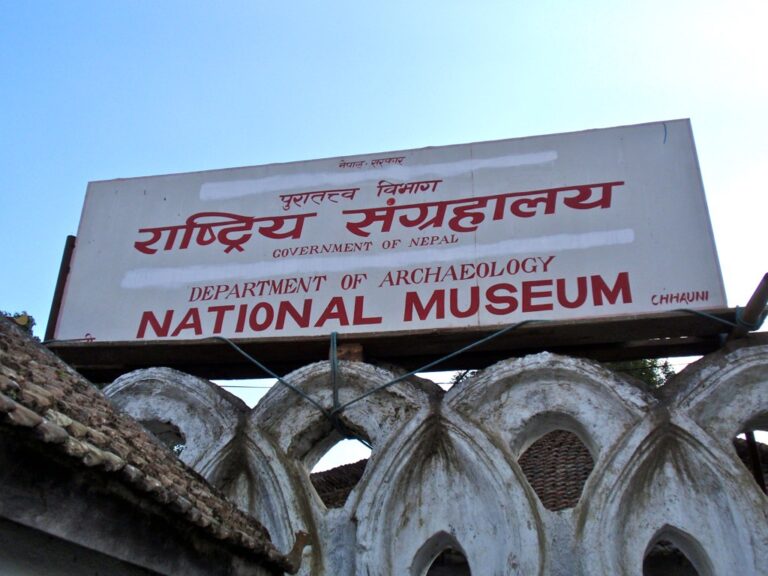
8. Explore Nearby Monasteries
The area surrounding Swayambhunath is dotted with ancient monasteries and viharas, many of which welcome visitors.
Here are a few not to miss:
Kindo Baha – One of Nepal’s oldest Theravada monasteries, known for its peaceful courtyards and daily chanting.
Anandakuti Vihar – Nestled among trees, it’s a serene spot ideal for meditation and reflection.
Seto Gumba (White Monastery) – A little farther away, this gleaming monastery offers breathtaking views of the valley.
Vidhyeshvari Vajra Yogini Temple – Sacred to Vajrayana practitioners and filled with intricate tantric art.
Each of these monasteries tells its own story — about devotion, resilience, and the evolution of Buddhism in Nepal.
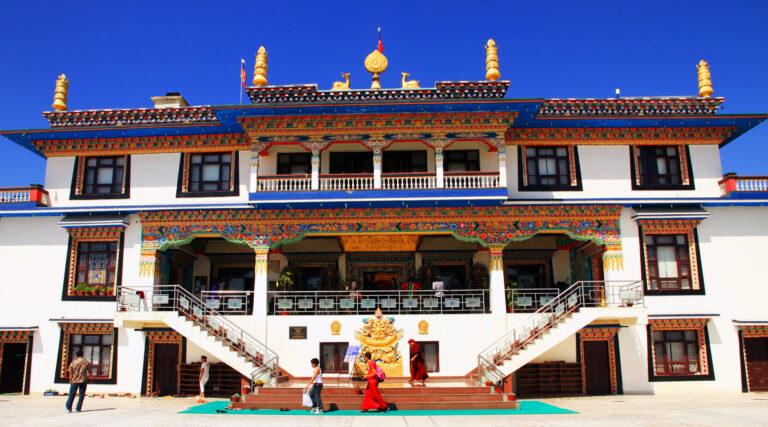
9. Try Local Nepali and Tibetan Street Food
No trip to Swayambhunath is complete without tasting the flavors of the neighborhood. Around the base of the hill and in nearby alleys, you’ll find steaming momos, spicy aloo chop, and crispy sel roti — a traditional ring-shaped rice doughnut.
You’ll also come across Tibetan eateries serving laphing (cold mung bean noodles with chili sauce), keema noodles, thukpa (hearty noodle soup), tingmo (steamed bread), and shabaley (fried meat-filled dumplings).
One of my favorite memories is enjoying a plate of spicy keema noodles after the morning climb — the perfect reward after exploring the temple.

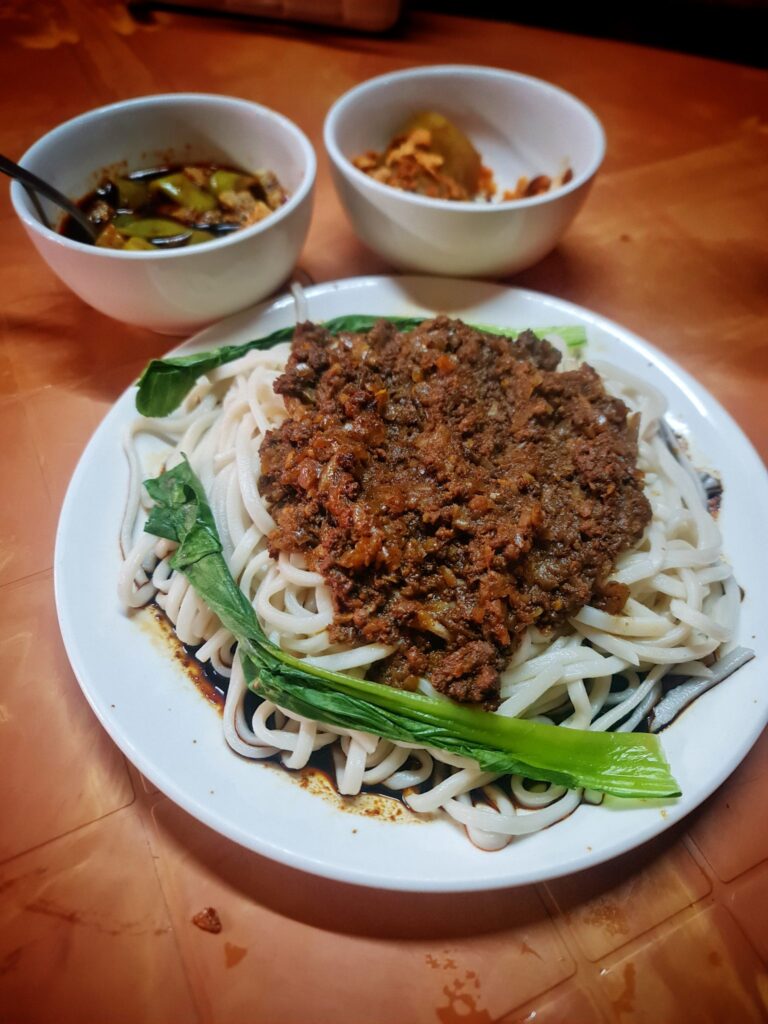
10. Walk to Kathmandu Durbar Square
If you’re in the mood for more heritage and a bit of exercise, take the scenic 30–40 minute walk to Kathmandu Durbar Square, another UNESCO World Heritage Site.
The walk winds through quiet neighborhoods, busy markets, and traditional courtyards before leading you into the heart of old Kathmandu. Once there, admire the Hanuman Dhoka Palace, the Kumari Ghar (home of the living goddess), and the stunning pagodas that date back centuries.
I love buying nepali handmade crafts around this area. Another thing I don’t like to miss is buying artisanal incense, Nepali tea and spices.
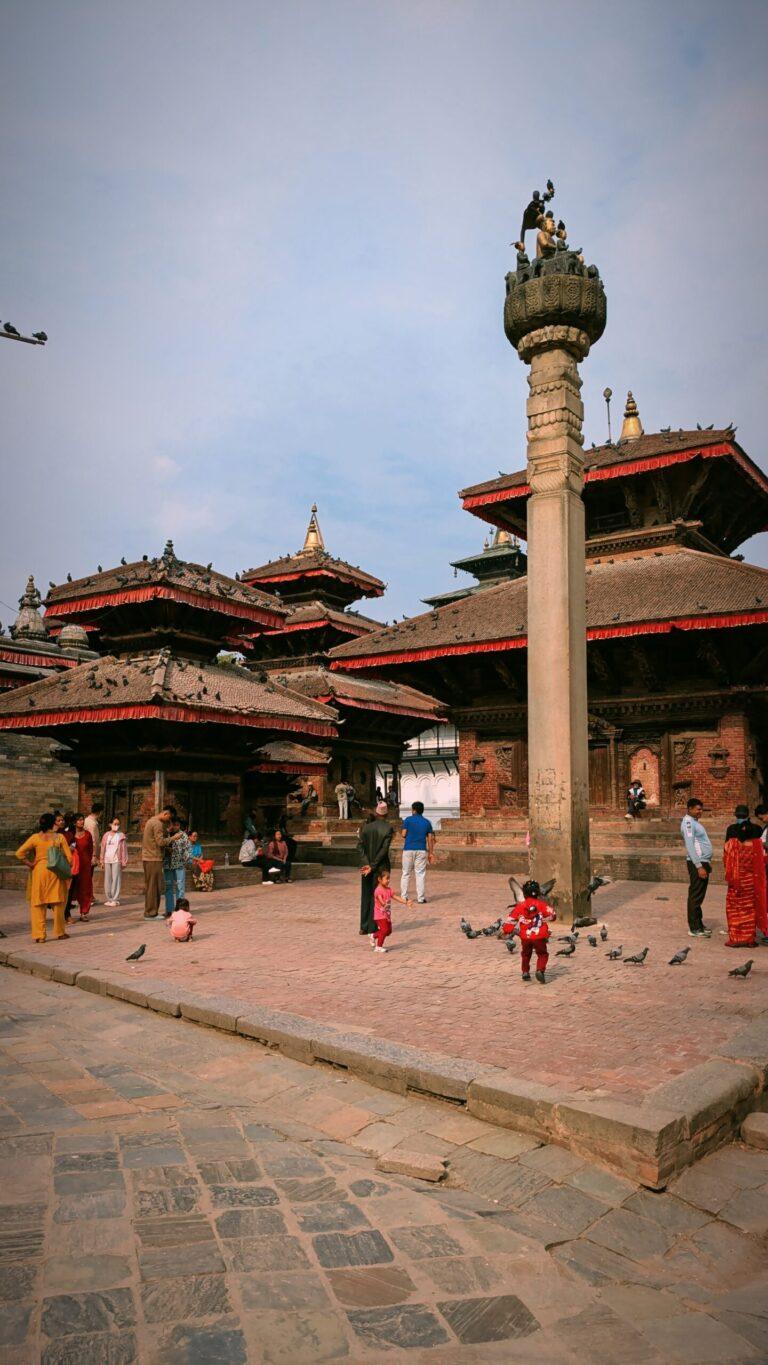
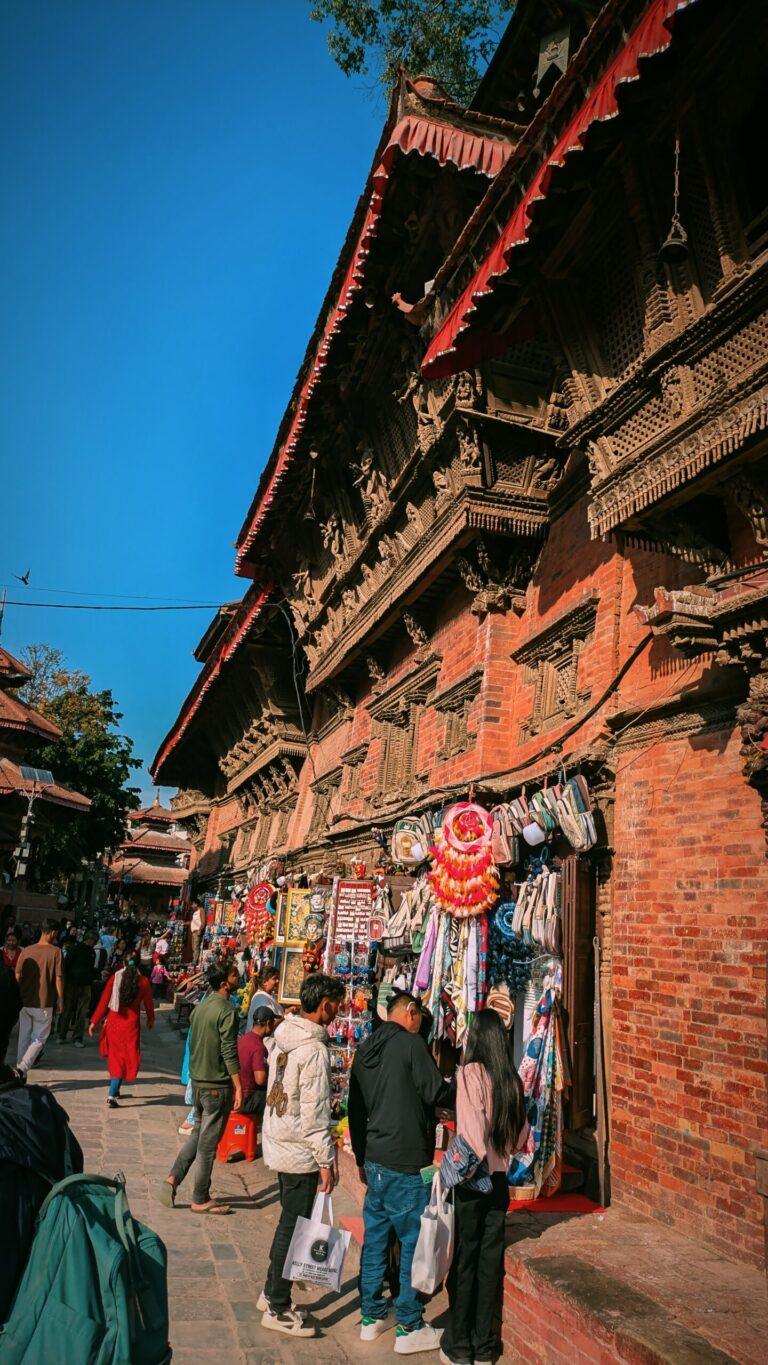
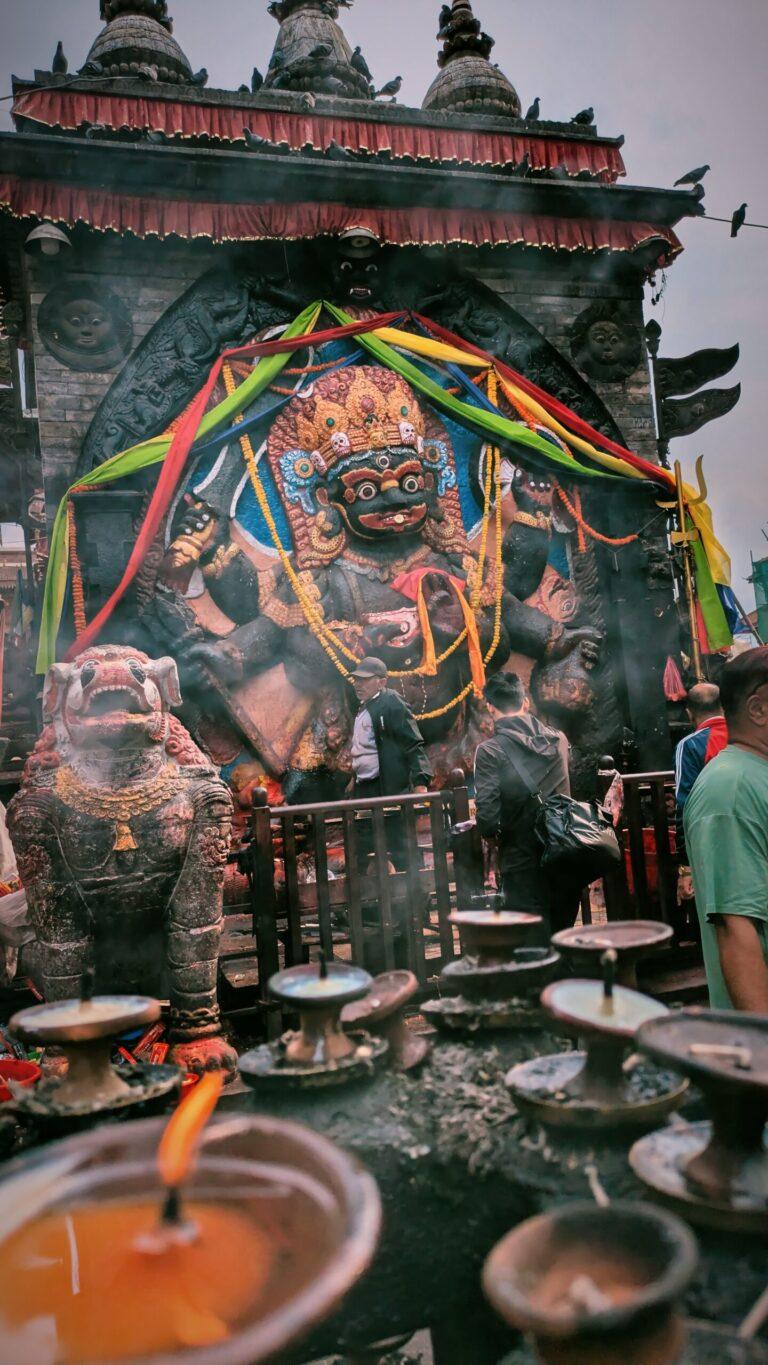
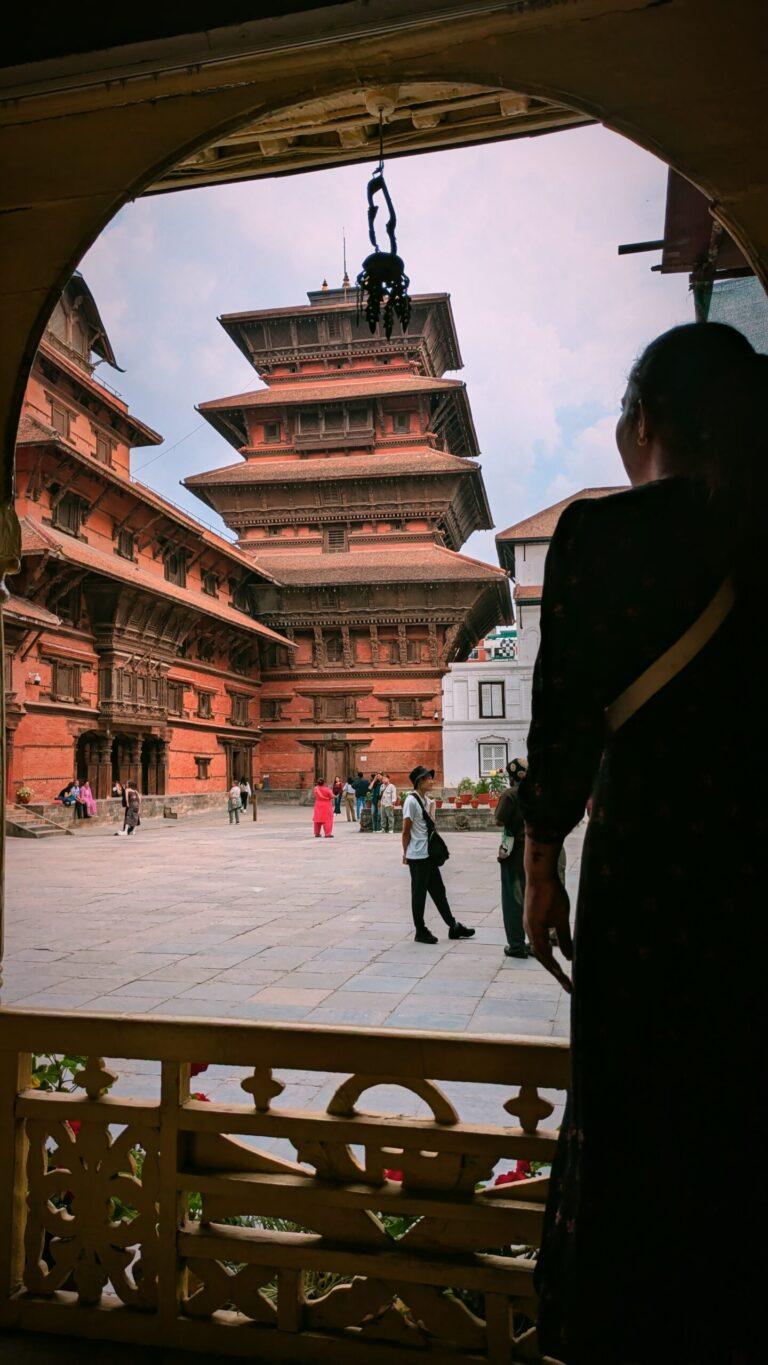
Final Thoughts
Swayambhunath isn’t just a tourist spot — it’s a place of soul, symbolism, and deep connection. From its golden stupa watching over the valley to the laughter of monkeys and the hum of prayer wheels, it embodies the timeless spirit of Kathmandu.
Whether you’re here for spiritual reflection, photography, or simply to watch the sunset, you’ll leave with a sense of calm and gratitude that’s hard to put into words.
Growing up in Kathmandu, this place is one of my personal favorites and one that I visited the most. I used to go there early morning for the morning puja, the smell of the incense and the sound of bells and prayers.
Pro Tip: Visit early in the morning for a peaceful experience, or stay until sunset to see the stupa glow under soft twilight hues.
🗺️ Suggested Visit Plan Around Swayambhunath:
Morning: Begin with contemplative chanting at Anandakuti Vihar
Midday: Explore Swayambhnath stupa and inner shrines, then descend to Shantipur and the smaller viharas
Afternoon: Walk north to Seto Gumba for sunset vistas
Alternate Day Trip: Head east to Kopan Monastery for a meditation retreat or teaching session
FAQs
Q: What is the best time to visit Swayambhunath? A: Early morning or late afternoon offers the best light, fewer crowds, and cooler temperatures.
Q: How do I get to Swayambhunath? A: It’s about a 15-minute drive from Thamel, or a 30–40 minute walk depending on your pace.
Q: Is there an entrance fee? A: Yes, there is a small fee for foreign tourists, typically around NPR 200.
💬 Share Your Experience
Have you been to Swayambhunath or tried climbing the 365 steps? Did you spot the playful monkeys or enjoy momos nearby?
Share your favorite memories or travel tips in the comments below — I’d love to hear how you experienced this spiritual hilltop!

